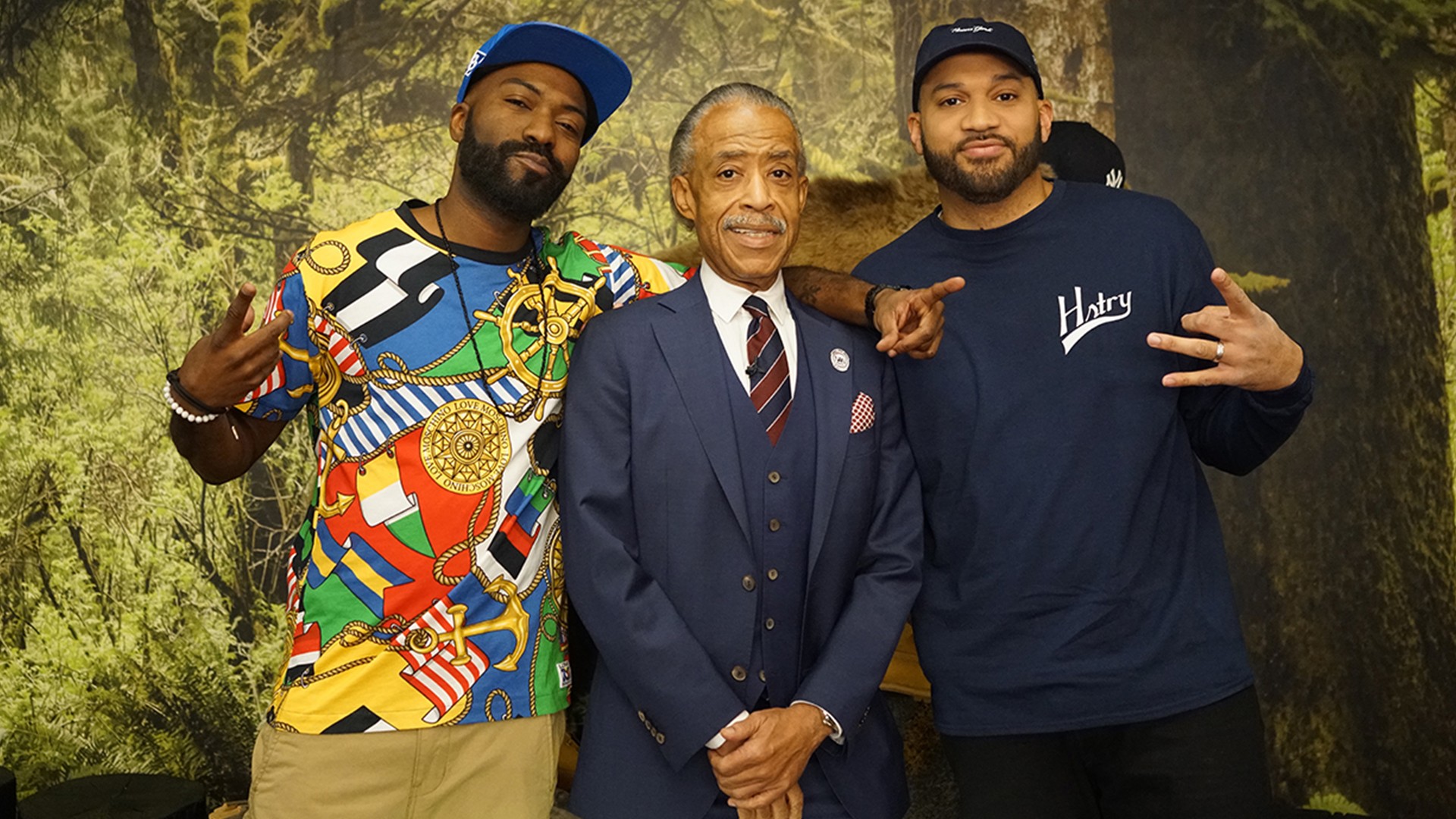Illustration by Lia Kantrowitz
In the past week, Donald Trump abruptly fired the FBI director and allegedly revealed classified information to Russian officials—big, big news stories that have made the internal politics of the federal bureaucracy seem even less important than usual. But the announced resignation of Census Bureau director John H. Thompson in June shouldn't be ignored; it could have massive consequences for millions of Americans down the line, whether or not anyone is paying attention.The 2020 census is three years away. But without Thompson, the ginormous task of counting everyone who lives in America could go off the rails, and the collateral damage of a botched census would be Americans in need of federal benefits.Here are some questions you should be asking:Census numbers are used to determine which federal resources should go where. One of those resources is electoral representation—the census determines how many congressional districts each state should have. Then, of course, there's the question of where to put $400 billion a year in funding for roads, schools, services for the elderly, public health, job training, and other necessities for the poor.The distribution of federal resources is calculated using census data, so it's especially critical that marginalized people are counted accurately. That makes it all the more devastating when, time and again, black and Hispanic populations in particular are undercounted. Partly, this is due to people in precarious living situations fearing the government, and not filling out the census forms that get mailed out to everyone. If the 2020 census is mismanaged, it "would be a disaster for marginalized groups, who would see apportionment of federal dollars shrink to the areas in which they predominate," Moon Duchin, a Tufts University mathematician working on ways to fight gerrymandering, told me in an email.So those are the stakes—a poorly done census will lead to people in poverty and minorities losing aid that they desperately need.
Watch Desus and Mero interview Al Sharpton: The first thing to understand is that people close to the matter are still trying to figure out why Thompson is leaving his job. He was an Obama appointee, and though his term as director ended last year, that was a chaotic time for the Census Bureau thanks to major budget constraints (more on those in a second). So Thompson agreed he was going to stay on until next year—and then last week, he decided he wasn't. In response to intimations that he was being forced out, White House deputy press secretary Sarah Huckabee Sanders told the Associated Press, "He's simply retiring from public service. He spent 30 years in public service and ten in the private sector."Importantly, the budget constraints the Census Bureau is dealing with are the consequence of years of attacks from the right. To understand that, we have to go back a few years:To supplement those forms that the census mails out, the government sends out census workers to knock on doors and ask people how many people live in residences that didn't return the forms. In 2010, the Census Bureau increased those outreach efforts, and it paid off, according to government accountability activists Gary Bass and Adrien Schless-Meier, who wrote about it in the American Prospect in 2015. What's normally a drastic undercounting of minorities was vastly improved "due primarily to the Census Bureau's dogged determination to walk America's streets and knock on the doors of the roughly 100 million US residents who didn't mail back their forms," they wrote.That said, the 2010 Census still undercounted minorities by 1.5 million, and was extremely expensive—it cost cost about $48 per person, way up from $16 per person in 2000.
The first thing to understand is that people close to the matter are still trying to figure out why Thompson is leaving his job. He was an Obama appointee, and though his term as director ended last year, that was a chaotic time for the Census Bureau thanks to major budget constraints (more on those in a second). So Thompson agreed he was going to stay on until next year—and then last week, he decided he wasn't. In response to intimations that he was being forced out, White House deputy press secretary Sarah Huckabee Sanders told the Associated Press, "He's simply retiring from public service. He spent 30 years in public service and ten in the private sector."Importantly, the budget constraints the Census Bureau is dealing with are the consequence of years of attacks from the right. To understand that, we have to go back a few years:To supplement those forms that the census mails out, the government sends out census workers to knock on doors and ask people how many people live in residences that didn't return the forms. In 2010, the Census Bureau increased those outreach efforts, and it paid off, according to government accountability activists Gary Bass and Adrien Schless-Meier, who wrote about it in the American Prospect in 2015. What's normally a drastic undercounting of minorities was vastly improved "due primarily to the Census Bureau's dogged determination to walk America's streets and knock on the doors of the roughly 100 million US residents who didn't mail back their forms," they wrote.That said, the 2010 Census still undercounted minorities by 1.5 million, and was extremely expensive—it cost cost about $48 per person, way up from $16 per person in 2000.
In the years following that expensive but relatively minority-friendly census, theories about the Census Bureau being corrupt became increasingly popular in the right-wing press. In 2013, a New York Post writer named John Crudele wrote a piece claiming that the Bureau faked the jobs report in 2012. That piece was quickly debunked, and found by the Columbia Journalism Review to be "bogus." Still, the evils of the Census Bureau became Crudele's signature beat for about a year. Other conservative publications, like the Washington Examiner and Breitbart, have reported aggressively on anything that smells like waste within the Census Bureau.So in 2015, for whatever reason, Republicans in the House of Representatives brutally slashed the census budget for 2020—forcing Thompson to vow that the 2020 survey wouldn't cost taxpayers a penny more than the one in 2010. Then the 2017 spending bill gave the Census Bureau a further 10 percent less than it had requested for the year. That meant Thompson was in charge of cheapening, and then re-cheapening, the census. That cheapening in turn meant a complicated redesign of survey operations, including a shift to online questionnaires and cheaper ways of estimating populations.Duchin told me that the nightmare is that the Trump administration "can try to direct the Census Bureau to stop using any estimation techniques and simply report the numbers as the forms are returned to them." This would drastically undercount minorities, and probably provoke a reaction from activists. But how would you count people without knocking on their doors?Cathy O'Neil, a data consultant and author of the book Weapons of Math Destruction, threw out a helpful example of a potential "big data" shortcut the census could use:Figure out how many people on any given city block are paying for WiFi, then multiply that number by the average number of people per WiFi line. That gives you the population of the block. As for race, you figure out the race of one person on the block and give the entire block that race. "This would be right on average—by construction—but could be undercounting blacks and over-counting whites if blacks are less likely to buy WiFi, or are more likely to share wifi with more people," O'Neil told me an email.As with merely counting the forms returned by mail, that could result in minorities shrinking on paper, and then not having access to needed programs and infrastructure.Losing Thompson at the end of June means the bureau loses the leadership of a highly distinguished statistician—and it's not clear who will replace him. According to Politico, the current leading candidate within the Census Bureau is a former weather forecaster. Trump hasn't nominated anyone to the post yet, leaving the organization drifting along without leadership and under unprecedented budget constraints. The longer Thompson's seat is empty, the more we should all worry.Follow Mike Pearl on Twitter.
Advertisement
Why should I care about the boring-ass census?
Advertisement
Watch Desus and Mero interview Al Sharpton:

Why did Thompson resign?
Why does the Census keep getting its budget slashed?
Advertisement
In the years following that expensive but relatively minority-friendly census, theories about the Census Bureau being corrupt became increasingly popular in the right-wing press. In 2013, a New York Post writer named John Crudele wrote a piece claiming that the Bureau faked the jobs report in 2012. That piece was quickly debunked, and found by the Columbia Journalism Review to be "bogus." Still, the evils of the Census Bureau became Crudele's signature beat for about a year. Other conservative publications, like the Washington Examiner and Breitbart, have reported aggressively on anything that smells like waste within the Census Bureau.So in 2015, for whatever reason, Republicans in the House of Representatives brutally slashed the census budget for 2020—forcing Thompson to vow that the 2020 survey wouldn't cost taxpayers a penny more than the one in 2010. Then the 2017 spending bill gave the Census Bureau a further 10 percent less than it had requested for the year. That meant Thompson was in charge of cheapening, and then re-cheapening, the census. That cheapening in turn meant a complicated redesign of survey operations, including a shift to online questionnaires and cheaper ways of estimating populations.
Advertisement

